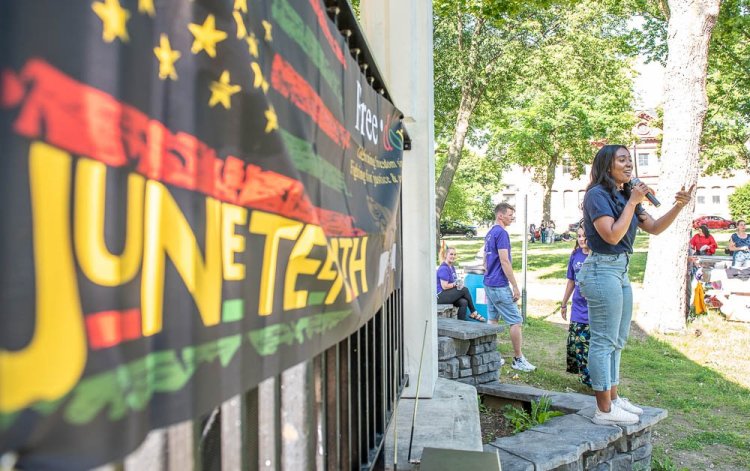Most people think that the Civil War ended on April 4, 1865, in Appomattox, Virginia, when Ulysses S. Grant accepted the surrender of the Confederate forces under Robert E. Lee. But the war continued for months until other Confederate armies were defeated.
It wasn’t until June 19, 1865, 11 weeks after Lee’s surrender, that Union troops took Galveston, Texas and informed the enslaved people there that the war was over, and they were now free. Gen. Gordon Granger announced that he would enforce the Emancipation Proclamation. That meant that they had been free, at least on paper, since Jan. 1, 1863, when Abraham Lincoln abolished slavery in the states that were then in rebellion.
For formerly enslaved people and their descendants, June 19 became “Juneteenth,” or “Emancipation Day,” celebrating their victory over bondage. It became a national holiday in 2021, and should be one that all Americans can embrace as a second founding that gives meaning to the first.
Just as the Fourth of July celebrates revolutionary ideas put into action to start the American experiment in self-government, Juneteenth celebrates the revolutionary transformation that was required to make the founders’ words true.
As brave and brilliant as the original revolutionary generation was, they created a country that could not survive because of the cancer of slavery. It was a house divided upon itself, and it did not stand.
The Declaration of Independence proclaimed that all people “were created equal,” but the founders gave us an empire built on the backs of 4 million slaves, with corruption creeping into every crevice of society, North and South, affecting American history in ways that we are still trying to unwind.
It took a four-year civil war and the loss of 750,000 lives for the enslaved people of Galveston to be included among the people. And that, of course, was not the end of the story.
The freedmen and women and their descendants had to keep fighting for what they had been promised on Juneteenth. It took almost a century for Congress and the Supreme Court to end legal segregation and protect Black voters from discriminatory state laws. The fight continues today, as the current Supreme Court undoes the legislative victories of the 1960s, and states pass new laws aimed at interfering with Black voters.
Juneteenth became a federal holiday in 2020 during the unprecedented protests of police violence against Black people following the murder of George Floyd. But in the past two years, Congress has failed to pass meaningful police reform legislation.
And we have seen a backlash against the historical reckoning that was prompted by the protests of 2020. Efforts to talk honestly about the past are written off as “critical race theory,” designed to make white children ashamed of their heritage. To the critics, taking down memorials to traitors is cancelling history; Exploring the truth of who suffered and who profited from 250 years of slavery is unpatriotic.
But patriots shouldn’t be afraid of history. As President Barack Obama said in his 2014 speech marking the 50th anniversary of the Selma to Montgomery voting rights march:
“What greater form of patriotism is there than the belief that America is not yet finished, that we are strong enough to be self-critical, that each successive generation can look upon our imperfections and decide that it is in our power to remake this nation to more closely align with our highest ideals? …
“We respect the past, but we don’t pine for the past. We don’t fear the future; we grab for it. America is not some fragile thing. We are large, in the words of Whitman, containing multitudes.”
Juneteenth is the holiday that should remind us about the distance between freedom’s promise and its deliverance. We can all celebrate one of the great events in world history – the end of American slavery – and commit to the work ahead, because too many people are still waiting to be free.
Send questions/comments to the editors.



Success. Please wait for the page to reload. If the page does not reload within 5 seconds, please refresh the page.
Enter your email and password to access comments.
Hi, to comment on stories you must . This profile is in addition to your subscription and website login.
Already have a commenting profile? .
Invalid username/password.
Please check your email to confirm and complete your registration.
Only subscribers are eligible to post comments. Please subscribe or login first for digital access. Here’s why.
Use the form below to reset your password. When you've submitted your account email, we will send an email with a reset code.